Short Courses
The WDSA/CCWI Joint Conference
The 3rd WDSA/CCWI International Joint Conference program includes six Short Courses. Short Courses will be held in the morning of Monday, July 1, 2024.
General information about Short Courses is provided below:
- Short Courses will start at 9:00 a.m. and their maximum duration will be 4 hours.
- All courses will be held in parallel. It will be possible to attend only one of them.
- Short Courses will be free of charge for conference attendees.
- Conference attendees can register to Short Courses during Conference registration procedure that will open on March 1, 2024.
- Each Short Course has a limited number of participants. If this limit is exceeded, priority will be given to those who completed the registration first.
- Please, note that for each short course the requirements (hardware, software, etc.) are reported in the dedicated section on the conference website.
If you have any questions, please do not hesitate to contact us (info@wdsa-ccwi2024.it).
The scheduled courses and their leaders are:
Short Course A
Building the geometric model of WDNs: data and information management
Course Leaders:
- Luigi Berardi – University “G. d’Annunzio” of Chieti Pescara (Italy)
- Daniele Biagio Laucelli – Politecnico di Bari (Italy)
Short Course B
How KWR bridges science to practice and vice versa
Course Leader:
- Mirjam Blokker – KWR Water Research Institute (The Netherlands)
Short Course C
Introduction to the EPANET-Python toolkit (EPyT) for smart water network simulations
Course Leader:
- Demetrios Eliades – University of Cyprus (Cyprus)
Short Course D
WNTR and related open-source software for water distribution system analysis: training and discussion on future capabilities
Course Leaders:
- Lina Sela – University of Texas (Austin, USA)
- Meghna Thomas – University of Texas (Austin, USA)
- Kate Klise – Sandia National Laboratories (USA)
- Terra Haxton – U.S. Environmental Protection Agency (USA)
- Regan Murray – U.S. Environmental Protection Agency (USA)
Short Course E
Large language models, generative AI and urban water engineering
Course Leader:
- Riccardo Taormina – TU Delft (The Netherlands)
Short Course F
A probabilistic approach to solutions for sustainable stormwater control and management
Course Leader:
- Anita Raimondi – Politecnico di Milano (Italy)
Short course A
Building the geometric model of WDNs: data and information management
Course Leaders:
Luigi Berardi
University “G. d’Annunzio” of Chieti Pescara (Italy)
Send an email: luigi.berardi@unich.it
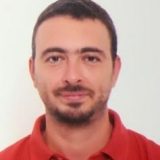

Luigi Berardi
Full Professor in Hydraulic Engineering at Engineering and Geology Department of University “G. d’Annunzio” of Chieti Pescara (Italy). PhD (2009) in Civil and Environmental Engineering. Visiting Researcher at the Center for Water Systems, University of Exeter (UK) and Research Fellow at Polytechnic of Bari (Italy) until 2018. The main area of expertise is on analysis and management of water distribution networks including: advanced hydraulic modelling and calibration; DMA design; pressure control; WDN vulnerability; rehabilitation planning, leakage management. He worked on developing data-modeling techniques used for water infrastructure management and is currently engaged as innovation provider for water operators, as co-funder of the university spin-off company INFORMHYDRO s.r.l.
Daniele Biagio Laucelli
Politecnico di Bari (Italy)
Send an email: danielebiagio.laucelli@poliba.it


Daniele Biagio Laucelli
Full Professor in Hydraulic Engineering at the Technical University of Bari. My PhD is in Environmental Engineering (2005) working on Machine Learning applied to hydraulic and natural systems. Research fellow at the TU Bari until 2008, and visiting researcher at the Centre for Water Systems, University of Exeter (UK) until 2010 working on water distribution networks management. Main research interests are in Hydroinformatics (development of data-modelling techniques used for water infrastructures and hydrological systems the management - EPR-MOGA, ANN-MOGA); analysis, design and management of water distribution networks (e.g., network simulation models, reliability analysis, pumping optimization, rehabilitation and loss management, complex network theory applied to district planning and network monitoring).
Course Instructors:
Francesco Gino Ciliberti
University “G. d’Annunzio” of Chieti Pescara (Italy)


Francesco Gino Ciliberti
Francesco G. Ciliberti is a PhD student at the Engineering and Geology Department of University "G. d’Annunzio," Chieti Pescara, Italy. Between 2018 and 2020, he was a research fellow at the Department of Civil Engineering and Architecture, Technical University of Bari, Italy. His research focuses on supporting Water Distribution Networks (WDNs) management by developing advanced methodologies. He emphasizes digital transformation in his work to assist technicians and water utilities in efficiently managing the life-cycle of WDNs.
Antonietta Simone
University “G. d’Annunzio” of Chieti Pescara (Italy)


Antonietta Simone
Antonietta Simone is Research Fellow at the University “G. D’Annunzio” of Chieti- Pescara (Italy). Her main area of research is the analysis, design and management of water distribution networks (WDNs) including: advanced hydraulic modelling and calibration; development and tailoring of CNT (Complex Network Theory) metrics for domain analysis and vulnerability, optimal WDN segmentation and DMA design; strategies for pressure control and leak reduction; optimal planning of rehabilitation; Digital Twin and Digital Water Services.
Stefania Piazza
Università di Enna Kore (Italy)
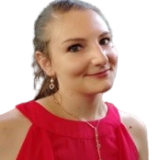

Stefania Piazza
Stefania Piazza is a research fellow at the University of Enna "Kore", specialized in the field of hydraulic engineering and water quality in distribution networks. You have contributed significantly to scientific research with numerous publications, focusing on the analysis of diffusion and dispersion processes in water networks and the optimal positioning of water quality sensors. Among her most relevant works are studies on the modeling of contaminant transport and the identification of brackish water infiltration. She has demonstrated a strong commitment to her field, contributing to international conferences and developing innovative models for managing and monitoring water infrastructure.
Description
Digital transition is going to provide unprecedented quality and quantity of WDN process data using digital technologies to feed advanced strategies and decision support methodologies, leading to the development of digital water services. Such transformation relies on the building of the geometric model of the WDN, i.e., the representation of the spatial layout that encapsulates crucial information to characterize the physical layer of the WDNs digital twin. Nonetheless, in many real contexts, the digital representation of WDN geometric model is absent or is not suitable for the novel framework and tools offered by the digital transformation.
The course addresses the pressing need of many water providers to give value to all data stored into the water utilities’ database, integrating information coming from recent infrastructure surveys and monitoring campaigns, as well as the daily first-hand knowledge of the operators. This activity can represent in itself a new area of investigation, that goes beyond the mere detection and correction of topological errors in existing drawings of water networks.
Indeed, tools from digital transition may support the activities of technicians starting from the essential stage of system knowledge. The main themes of the course are as follows:
- digital transition in WDNs management: opportunities and current limitations;
- gathering key information from water utilities’ database;
- common issues of existing geometric entities representation of networks;
- network graph analysis to detect connectivity issues;
- applying DMAs analysis tools to detect connectivity issues;
- applying topological domain analysis for abnormal pipe diameters detection;
- using in-progress hydraulic model to detect connectivity issues, missing devices, abnormal diameters and errors in the elevation of nodes and consumers.
The discussion of each theme will be supported by examples from real WDNs that instructors analysed by cooperating with water providers at Italian and international level. The purpose is to provide a novel perspective to data and information management, to boost the digital transition in WDN management sector.
Target Audience:
The course is designed for peoples working at water companies, who are usually engineers in the middle of the chain from data to technical decisions. The themes of data management and integration are also of direct interest of top managers of water companies to be aware about current limitations and opportunities to drive such strategic activities towards digital transition. Due to the innovative tools and approaches that will be used in such a novel research area, doctorate students and researchers are also welcome to get inspired.
Max number of participants: 50
Course requirements: None.
Short course B
How KWR bridges science to practice and vice versa
Course Leader and Instructor:
Mirjam Blokker
KWR Water Research Institute (The Netherlands)
Send an email: mirjam.blokker@kwrwater.nl
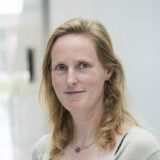

Mirjam Blokker
Mirjam Blokker is a Principal Scientist on the Drinking Water Infrastructure team. She is an expert in drinking water demand and developed the SIMDEUM model, which can be used to predict water demand for showers, toilet-flushing, consumption, etc. Mirjam also has a part-time position as an associate professor in the Water Management department of TU Delft. Lastly, Mirjam chairs the expert group on Sanitary Techniques of the TVVL (Dutch Installation sector).
Course Instructors:
Karel van Laarhoven
KWR Water Research Institute (The Netherlands)


Karel van Laarhoven
Karel van Laarhoven is a scientific researcher in the Water Infrastructure team. He enjoys applying his background in physics and microbiology to answer a broad range of questions regarding drinking water distribution. Karel mostly studies the automation and optimization of the strategic design of the distribution network (security of supply, master plans, sensor networks, sectorization) and the condition of the distribution network (degradation of pipe materials such as AC and PVC, inspection techniques, condition modelling, failure analysis). Karel coordinates the joint research program with Dutch and Flemish water utilities on the topic of drinking water distribution.
Ralph Beuken
KWR Water Research Institute (The Netherlands)


Ralph Beuken
Ralph Beuken works as a researcher on the Water Infrastructure team. His expertise is in asset management of underground infrastructure, with a focus on knowledge building of pipe conditions, setting up information systems, and the performance of and risks to the pipe network. The subjects he worked on recently include decision-making processes, client wishes and expectations and asset management, a glance ahead to 2030 and 2050 regarding assets, and knowledge exchange and stimulation. He is also secretary of the Water Utility Standardisation Contact Group, an organisation that represents the interests of the drinking water utilities in the area of standardisation and certification.
Description
Research spans several levels of technological readiness (typically an indication how fundamental or applied a certain research endeavour is). A typical graduate student gets a taste of only a narrow spectrum of technological readiness (typically at a lower level) over the course of their graduation project. Based on research cases, we would like to present how applied research on drinking water distribution is performed in the Netherlands and how is anticipated at these levels. Ideally, a research line at KWR matures over the course of several years from an experienced or expected problem, to a fundamental idea, a practical solution to the problem, to daily practice. This trajectory along the technological readiness levels necessitates close collaboration between researchers and practitioners (bridging science to practice). Since research is iterative, especially in the present age of rapid innovations, it is not uncommon to take a step back and revisit a problem from an updated or renewed fundamental perspective (bridging practice to science). Moreover, tackling research at different readiness levels necessitates different types of research and corresponding funding.
In this short course, we wish to share a few examples from the Dutch landscape on how research lines have matured along the scale of technological readiness levels and what means were necessary to achieve the ends. The workshop will be split in two activities and three themes.
The three themes are as follows:
- Drinking water quality (Discoloration, chemical and biological quality, temperature …)
- Network design (Optimal design, DMA sectorization, water demand …)
- Asset management (Condition deterioration of pipes, replacement strategies, inspection techniques …)
The two activities are as follows:
- A presentation on each of the three themes. In each presentation, a concrete example of how a research line went from a felt problem to a fundamental idea to (refinement of) daily practice in the Netherlands will be shared. Each presentation will be delivered by an experienced research scientist and last 20 minutes. There will be 10 minutes thereafter for questions/discussion.
- Group discussions by participants where three groups will each cover one theme. Discussion in each group will be guided by an experienced research scientist and a practitioner from the Dutch drinking water utilities. The aim of this discussion is to scrutinize one or two research topics from the participants in that group and discuss what steps would be needed for the research to be stepped up to a higher technological readiness level. Following the discussions, each group will share their findings with the other groups in a 5 minute presentation which will be followed by 10 minutes of discussion.
Target Audience:
The course is geared towards graduate students as well as practitioners in drinking water utilities. The workshop might offer perspective to graduate students who are contemplating the bigger picture of their research endeavours and are wondering about the true potential of the applicability of their research. The discussions are intended to help graduate students appreciate the practical challenges that lie when science needs to be bridged to practice. Practitioners from drinking water utilities are extremely welcome to participate in the discussions and offer practical insights. However, this workshop also offers a great opportunity to network with graduate students who are mastering their respective research topics. Interacting with graduate students in an intimate workshop also offers the chance to discuss the problems plaguing drinking water utilities, allowing a chance to bridge practice to science.
Max number of participants: 30
Course requirements:
(please, read carefully)
It is desired that participants fill in the document ShortCourses-WDSA-CCWI-2024-KWR-Participants-Preparation.docx and submit by May 01, 2024 (mail to Amitosh.dash@kwrwater.nl with subject “Short course WDSA/CCWI preparation”):
- Ranking of the three themes in which they possess interest in.
- A short description from graduate students explaining their research topic and how they envision that their findings can be translated to daily practice. A few examples are available as attachments on this webpage (ShortCourses-WDSA-CCWI-2024-KWR-Participants-Preparation-Examples.docx).
Doing the above will facilitate a smoother organization of the course and guarantee the most benefit for the participant. If there are major imbalances in the distribution of participants across the three themes, the organizers will redistribute the participants.
Short course C
Introduction to the EPANET-Python Toolkit (EPyT) for Smart Water Network Simulations
Course Leader:
Demetrios Eliades
University of Cyprus (Cyprus)
Send an email: eldemet@ucy.ac.cy
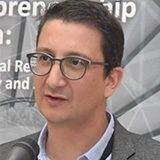

Demetrios Eliades
Dr. Demetrios Eliades is a Research Assistant Professor at the KIOS Research and Innovation Center of Excellence. His main area of research is on Smart Water Networks modelling, monitoring and security, aiming to reduce water losses, safeguard water quality and respond to contamination events, as well as increase cyber-physical security. He has worked with various research challenges including state estimation, sensor placement, real-time event diagnosis and active detection methods. He is also interested in developing open-source research tools (such as the EPANET-MATLAB Toolkit), and benchmarks. He co-organized the international competition “Battle of the Leakage Detection and Isolation Methods” (BattLeDIM) in 2020. He was the technical coordinator in various European research, innovation and industrial projects, such as the H2020 PathoCERT project and Interreg Greece-Cyprus SmartWater2020.
Course Instructors:
Stelios Vrachimis
University of Cyprus (Cyprus)
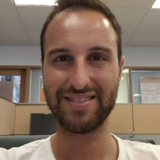

Stelios Vrachimis
Dr. Stelios Vrachimis is a Research Associate at the KIOS Research and Innovation Center of Excellence. He holds a B.Sc. and Ph.D. degrees in Electrical Engineering from the Department of Electrical and Computer Engineering at the University of Cyprus and an M.Sc. degree in Control Systems (Distinction) from Imperial College London. His research has focused on real-time state estimation of hydraulics and water quality in water distribution systems and on developing methodologies for fault-diagnosis, such as leakages and water contamination, in these systems. His other research interests include critical infrastructures modelling, optimization and fault-adaptive control with applications on large-scale engineering systems.
Marios Kyriakou
University of Cyprus (Cyprus)


Marios S. Kyriakou
Marios S. Kyriakou received his B.Sc (2012) and his M.Sc. (2014) in Electrical Engineering from the Department of Electrical and Computer Engineering of the University of Cyprus. His Master Thesis with the title “Risk Evaluation and Sensor Placement for Disinfection By-Products in Water Distribution Systems” was carried out in KIOS under the supervision of Prof. Marios M. Polycarpou. Since 2012, he is working as a Research/Software Engineer at the KIOS Research and Innovation Center of Excellence. His research interests are focused on water distribution systems modelling and GIS.
André Artelt
Bielefeld University (Germany)


André Artelt
André Artelt is a post-doctoral researcher in the Machine Learning Group at Bielefeld University and a visiting researcher at KIOS Research and Innovation Center of Excellence at the University of Cyprus. His research is about Trustworthy AI and AI for Critical Infrastructure. He mainly focuses on eXplainable AI (XAI) – in particular on contrasting explanations. Besides fundamental research, he also works on applications of XAI, such as water distribution networks, transportation, and decision support systems for business owners.
Description
The EPANET-Python Toolkit (EPyT) is an open-source software, originally developed by the KIOS Research and Innovation Center of Excellence, University of Cyprus which operates within the Python environment, for providing a programming interface for the latest version of EPANET, a hydraulic and quality modeling software created by the US EPA, with Python, a high-level technical computing software. The goal of the EPANET Python Toolkit is to serve as a common programming framework for research and development in the growing field of smart water networks. EPyT features easy-to-use commands/wrappers for viewing, modifying, simulating and plotting results produced by the EPANET libraries. EPyT aims to be established as an accessible tool for both academia and industry, facilitating comprehensive analyses and innovative solutions in smart water network research.
This course, designed for students and early-stage researchers, focuses on the effective utilization of EPANET through EPyT, to address different research challenges related to smart water networks, including modeling, monitoring, control, and security, as well as its used in Machine Learning applications.
Course Topics: Participants will learn about both practical and theory-based topics. These include studying hydraulic and water quality simulations, uncertainty modeling and monte-carlo simulations, generation of synthetic datasets for Machine Learning research, developing algorithms for smart water networks.
Target Audience:
Max number of participants: 15
Course requirements:
(please, read carefully)
The EPANET-Python Toolkit is available at the following link: https://github.com/OpenWaterAnalytics/EPyT
Kyriakou, M.S., Demetriades, M., Vrachimis, S.G., Eliades, D.G. and Polycarpou, M.M., 2023. EPyT: An EPANET-Python Toolkit for Smart Water Network Simulations. Journal of Open Source Software, 8(92), p.5947.
Short course D
WNTR and related open-source software for water distribution system analysis: Training and discussion on future capabilities
Course Leaders and Instructors:
Lina Sela
University of Texas (Austin, USA)
Send an email: linasela@utexas.edu
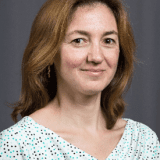

Lina Sela
Lina Sela is an Associate Professor in the Maseeh Department of Civil, Architectural and Environment Engineering department at the University of Texas at Austin. Dr. Sela’s research focuses on improving the efficiency of water distribution systems facing challenges related to finite water sources, aging infrastructure, and population growth. Her work relies on integrating data available from distributed sensing devices with physical-based models to improve operations and management of urban water systems, including hydraulic modeling, state estimation, leak detection, and pipe failure prediction. She is a recipient of the NSF CAREER award and is an Associate Editor in the Journal of Water Resources Planning and Management.
Meghna Thomas
University of Texas (Austin, USA)
Send an email: meghnathomas@utexas.edu


Meghna Thomas
Meghna Thomas is a Ph.D. candidate in Civil Engineering at the University of Texas at Austin. Her research projects include state estimation and optimization of water distribution systems. She has also been involved in the development of open-source tools for model reduction and visualization. She received an M.Sc. in Civil Engineering (with a focus on Energy, Civil Infrastructure and Climate) from the University of California, Berkeley, and a B.Sc. in Civil Engineering from Technion, the Israel Institute of Technology.
Kate Klise
Sandia National Laboratories (USA)
Send an email: kaklise@sandia.gov


Kate Klise
Kate Klise is a research scientist in the Energy Water Systems Integration Department at Sandia National Laboratories. Recent research has focused on infrastructure resilience, sensor placement optimization, and data analytics as applied to water distribution systems, electric grids, and renewable energy. As part of her research, she is actively developing open-source software including the Water Network Tool for Resilience (WNTR) to simulate and analyze failure scenarios in water distribution systems.
Terra Haxton
U.S. Environmental Protection Agency (USA)
Send an email: haxton.terra@epa.gov
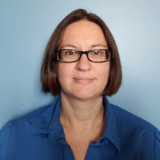

Terra Haxton
Dr. Terra Haxton is an environmental engineer that has been working on drinking water security research since joining EPA in 2007. She holds a B.S. in Civil Engineering from Rose-Hulman Institute of Technology and a M.S. and Ph.D. in Environmental Engineering from Vanderbilt University. Dr. Haxton has helped to develop water distribution modeling tools based on EPANET that can assist drinking water utilities before, during, and after a contamination incident. Past research areas have included using these tools to help detect contamination, identify the source of contamination, determine grab sample locations to outline contaminated areas, and evaluate response strategies for contamination incidents, such as flushing and chlorine booster injection. Her current research area is developing and applying modeling and simulation tools to assess the resilience of drinking water systems to disasters (e.g., earthquakes, power outages, pipe breaks, loss of source water).
Regan Murray
U.S. Environmental Protection Agency (USA)
Send an email: Murray.Regan@epa.gov
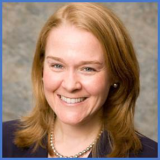

Regan Murray
Regan Murray is the Director of the Water Infrastructure Division within the Center for Environmental Solutions and Emergency Response in EPA's Office of Research and Development. She is proud to lead this division of more than 75 engineers, chemists, biologists, and physical scientists who collaborate every day to conduct research, provide technical support, and solve problems associated with our nation's drinking water, stormwater, wastewater, and water reuse infrastructure. Regan has been with the EPA since 2003 as a researcher in the areas of water security, sustainability, and resilience, and has held multiple science and management leadership positions within EPA. Regan holds a Ph.D. in applied mathematics with an emphasis in hydrology and water resources.
Description
Within the field of water distribution system analysis, there is an increasing trend to create open-source publicly available software that could be used, replicated, and generalized for a wide range of use cases. This includes the development of numerical models, resilience analysis, visualization, optimization, and state estimation. Developing open-source software can support knowledge transfer by increasing the visibility and usability of developed analytical tools and software, thus providing benefits to researchers and practitioners. This workshop focuses on the Water Network Tool for Resilience (WNTR) and additional packages that build on WNTR. The workshop will conclude with a discussion on open-source software development, the user community, and future capabilities.
In this short workshop, we will:
- introduce WNTR (https://github.com/USEPA/WNTR), a widely used open-source Python package for simulating and analyzing the resilience of water distribution systems developed by Sandia National Laboratories and U.S. Environmental Protection Agency.
- demonstrate two recently developed open-source Python packages developed by the University of Texas at Austin that build on WNTR:
- MAGNets (https://github.com/meghnathomas/MAGNets) designed to perform the reduction and aggregation of water distribution network models, based on the variable elimination method proposed by Ulanicki et al. (1996) and 2)
- VisWaterNet (https://viswaternet.readthedocs.io/en/latest/) for generating custom visualizations of water distribution systems.
- discuss the needs for future capabilities, analytical tools, and open-source software for water distribution system analysis, as well as success factors and challenges.
At the end of the workshop, participants will be able to set up hydraulic models, execute simulations, vary parameters to explore system response, and extract, analyze, and visualize results. All the material, including code, network models, and documentation, will be available electronically to the participants.
Target Audience:
Max number of participants: 30
Course requirements:
(please, read carefully)
Beginner level of programming experience with Python and familiarity with WNTR is preferred but not necessary. Participants will need to bring their own laptop with Anaconda distribution installed to run various simulations using WNTR, MAGNets, and VisWaterNet. Installation instructions will be provided prior to the conference.
Short course E
Large language models, generative AI and urban water engineering
Course Leader and Instructor:
Riccardo Taormina
TU Delft (The Netherlands)
Send an email: r.taormina@tudelft.nl
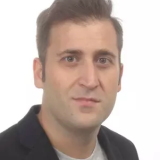

Riccardo Taormina
Dr. Riccardo Taormina is an Assistant Professor in the Department of Water Management of TU Delft and co-Director of AIdroLab. He has over 15 years of experience developing AI applications for the broad water sector, e.g., urban water networks, surrogate modelling, rainfall-runoff modelling, spatial flood mapping. More recently, his focus is on developing trustworthy AI methods that incorporate physics and domain-specific knowledge, as well as exploring the potential of generative AI. One of his latest initiatives entails the creation of cognitive assistant for the water sector, based on open-source generative AI. Since joining TU Delft in 2019, he has been teaching data science, machine learning and artificial intelligence.
Course Instructor:
Greg Kyritsakas
TU Delft (The Netherlands)


Greg Kyritsakas
Dr Greg Kyritsakas is research associate at TU Delft working on the ToDrinQ EU project. His research focuses on the development of data-driven applications for improving the quality of the drinking water. He has a 10-year career on the water consultancy sector before joining the University of Sheffield in 2017 to pursue a PhD in drinking water quality analytics. His previous research position was a post-doc position at the University of Sheffield, working on the application of machine learning algorithms and complex network theory for reducing the discolouration risk in the water distribution networks.
Description
Target Audience:
Participants from academia and industry working in the field of urban water systems, regardless of seniority.
Max number of participants: 50
Course requirements:
(please, read carefully)
Basic knowledge of Machine Learning/Deep Learning. Working knowledge of Python and its core data science modules (e.g., numpy, pandas, matplotlib, …). Knowledge of PyTorch or similar Deep Learning frameworks is not required, but certainly helpful. Participants are encouraged to bring their own laptops.
Short course F
A probabilistic approach to solutions for sustainable stormwater control and management
Course Leader and Instructor:
Anita Raimondi
Politecnico di Milano (Italy)
Send an email: anita.raimondi@polimi.it


Anita Raimondi
Anita Raimondi is a research assistant (RTDA) for the Department of Civil and Environmental Engineering at Politecnico di Milano and teacher of the class Water Engineering (bachelor level) and the course “Probabilistic Modeling of Sustainable Urban Drainage Systems” (PhD program in Environmental and Infrastructure Engineering). Her main fields of interest are stormwater control and management, nature-based solutions, and rainfall harvesting. In her research activities, she has developed an analytical-probabilistic approach for storage modeling. Related to these topics, she is involved in some research projects (also as principal investigator), and she collaborates as an associate editor with two international journals.
Description
Stormwater control and water resource management involve sometimes some critical issues in urban areas due to the growth of urbanization and urban population. The effects of climate change alter the complex balance between water and cities, where the hydraulic infrastructures are strictly related to the hydrographic network. Traditional supply and drainage systems are often insufficient to face, respectively, the increase in water demand and stormwater runoff control. In the last few decades, sustainable solutions have been proposed to mitigate the impact of both drought and extreme rainfall events and make cities more resilient and safer. They are typically based on rainwater harvesting and reuse for non-drinking supply and the promotion of stormwater infiltration and evapotranspiration to also restore the natural water balance in urban areas. Sustainable urban drainage systems involve multiple benefits for the environment and communities and meet some of the Sustainable Development Goals of the United Nations Agenda 2030. To be effective, they require careful planning and integration with the urban hydraulic infrastructure. The traditional approach to their design and management is often based on simplified hypotheses that strongly influence the performance of the systems. For example, the so-called “design storm method” neglects the possibility of the storage capacity pre-filling from previous events, assuming it is always fully available when a new rainfall occurs. This hypothesis is not negligible when dealing with nature-based solutions, characterized by low release processes. An analytical-probabilistic approach can overcome this limit without the requirement of a long-term series of observed data, reducing the computation effort of the analyses. It enables, once defined, the analytical expression characterizing the process to relate the output variables of interest to a return period from the probability distribution function of the hydrologic variables in input to the model. The short course aims to introduce an analytical probabilistic approach to modeling rainwater harvesting systems and green infrastructure, while also evaluating their performance under different climatic conditions and management scenarios. Specifically, it will consist of a brief introduction about:
- sustainable Urban Drainage Systems;
- the analytical-probabilistic approach: presentation, schematization of the processes, main
variables, assumptions; - analytical expressions: definition of the variables of the analysis as a function of the goal of
the analysis; - probabilistic modeling: derivation of the probability distribution functions as a function of the
input variable and the characteristics of the system; - some examples of applications of the analytical-probabilistic approach to different solutions.
Target Audience:
Max number of participants: 50
Course requirements: None
